Paper
For submission of articles or Working Papers to CEsA, please send an email to:
comunicacao@cesa.iseg.ulisboa.pt
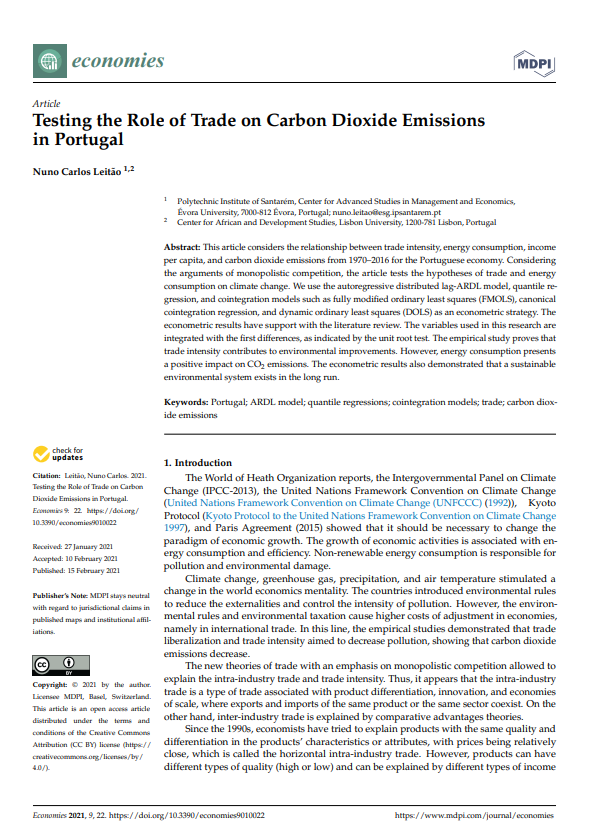
Testing the Role of Trade on Carbon Dioxide Emissions in Portugal
Abstract:
Testing the Role of Trade on Carbon Dioxide Emissions in Portugal considers the relationship between trade intensity, energy consumption, income per capita, and carbon dioxide emissions from 1970–2016 for the Portuguese economy. Considering the arguments of monopolistic competition, the article tests the hypotheses of trade and energy consumption on climate change. We use the autoregressive distributed lag-ARDL model, quantile regression, and cointegration models such as fully modified ordinary least squares (FMOLS), canonical cointegration regression, and dynamic ordinary least squares (DOLS) as an econometric strategy. The econometric results have support with the literature review. The variables used in this research are integrated with the first differences, as indicated by the unit root test. The empirical study proves that trade intensity contributes to environmental improvements. However, energy consumption presents a positive impact on CO2 emissions. The econometric results also demonstrated that a sustainable environmental system exists in the long run. This paper evaluates the theoretical and empirical studies on the effects of trade on carbon dioxide emissions. The theoretical arguments of monopolistic competition models and the relationship between trade intensity and pollution emissions are evaluated, allowing justifying this empirical study’s results. The econometric results show that trade intensity contributes to improving the environment, both in the short and long term, justifying the importance of environmental regulation.
Quotation:
Leitão, N.C. (2021a). Testing the Role of Trade on Carbon Dioxide Emissions in Portugal. Economies (MDPI) 2021,9 (1), 22. https://doi.org/10.3390/economies9010022
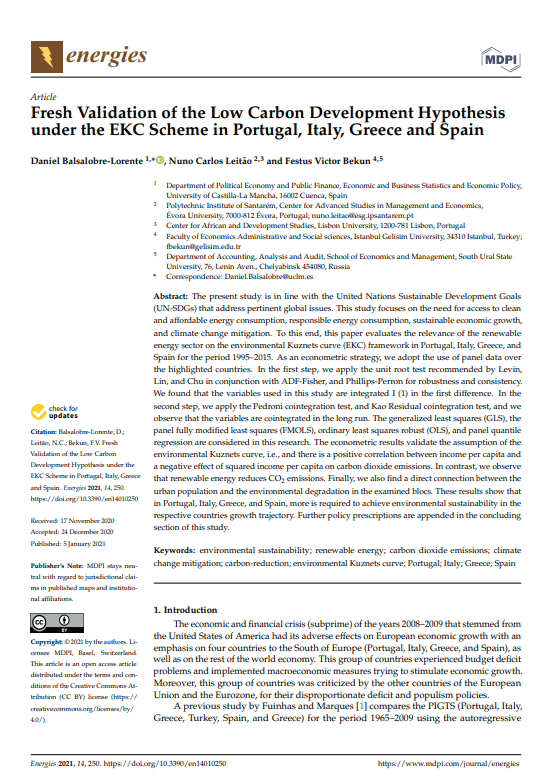
Fresh Validation of the Low Carbon Development Hypothesis under the EKC Scheme in Portugal, Italy, Greece and Spain
Abstract:
Fresh Validation of the Low Carbon Development Hypothesis under the EKC Scheme in Portugal, Italy, Greece and Spain is in line with the United Nations Sustainable Development Goals (UN-SDGs) that address pertinent global issues. This study focuses on the need for access to clean and affordable energy consumption, responsible energy consumption, sustainable economic growth, and climate change mitigation. To this end, this paper evaluates the relevance of the renewable energy sector on the environmental Kuznets curve (EKC) framework in Portugal, Italy, Greece, and Spain for the period 1995–2015. As an econometric strategy, we adopt the use of panel data over the highlighted countries. In the first step, we apply the unit root test recommended by Levin, Lin, and Chu in conjunction with ADF-Fisher, and Phillips-Perron for robustness and consistency. We found that the variables used in this study are integrated I (1) in the first difference. In the second step, we apply the Pedroni cointegration test, and Kao Residual cointegration test, and we observe that the variables are cointegrated in the long run. The generalized least squares (GLS), the panel fully modified least squares (FMOLS), ordinary least squares robust (OLS), and panel quantile regression are considered in this research. The econometric results validate the assumption of the environmental Kuznets curve, i.e., and there is a positive correlation between income per capita and a negative effect of squared income per capita on carbon dioxide emissions. In contrast, we observe that renewable energy reduces CO2 emissions. Finally, we also find a direct connection between the urban population and the environmental degradation in the examined blocs. These results show that in Portugal, Italy, Greece, and Spain, more is required to achieve environmental sustainability in the respective countries growth trajectory. Further policy prescriptions are appended in the concluding section of this study.
Quotation:
Balsalobre-Lorente, D., Leitão, N.C., Bekun, F., V. (2021). Fresh Validation of the Low Carbon Development Hypothesis under EKC Scheme in Portugal, Italy, Greece, and Spain. Energies 2021. 14(1), 250. https://doi.org/10.3390/en14010250
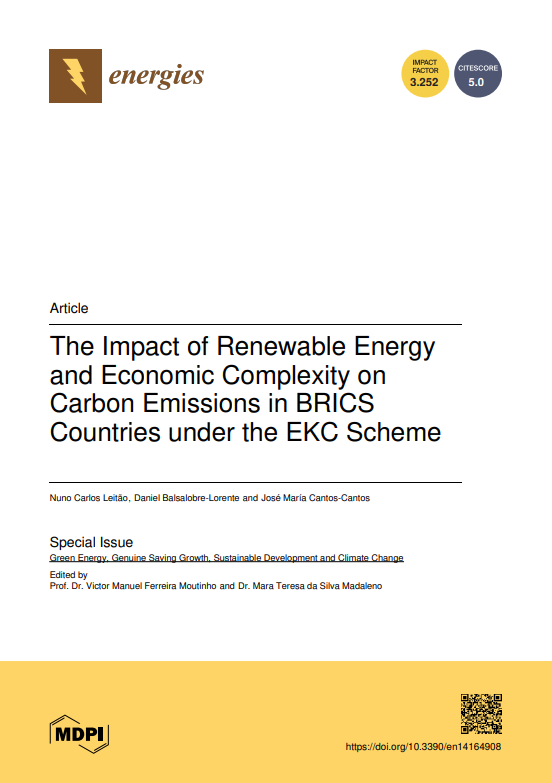
The Impact of Renewable Energy and Economic Complexity on Carbon Emissions in BRICS Countries under the EKC Scheme
Abstract:
Economic complexity makes it possible to assess the development of the countries, the relations of innovation, and the differentiation of products. The Impact of Renewable Energy and Economic Complexity on Carbon Emissions in BRICS Countries under the EKC Scheme considers the links between the hypotheses of the Kuznets environmental curve and economic complexity using panel data for the group of BRICS countries (Brazil, Russia, India, China, and South Africa) from 1990 to 2015. As an econometric strategy, this study considered the panel fully modified least squares (FMOLS), panel dynamic least squares (DOLS), fixed effects (FE), and Panel Quantile Regression. The empirical results showed that economic complexity, income per capita, renewable energy, and carbon dioxide emissions are integrated with the first difference when applying the unit root test. The arguments of Pedroni and Kao cointegration tests were also used. According to these results, the variables used in this research are cointegrated in the long run. The results validated the arguments of the EKC hypothesis, i.e., the income per capita and squared income per capita are positively and negatively correlated with CO2 emissions. Moreover, economic complexity and renewable energy aim to improve environmental damage and climate change.
Quotation:
Leitão, N.C., Balsalobre-Lorente, D., Cantos-Cantos, J.M. The Impact of Renewable Energy and Economic Complexity on Carbon Emissions in BRICS Countries under the EKC Scheme. Energies 2021, 14, 4908. https://doi.org/10.3390/en14164908
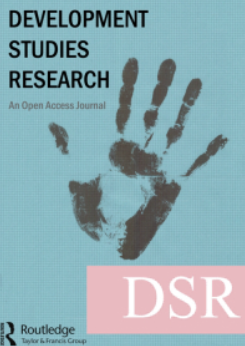
Identifying differences and similarities between donors regarding the long-term allocation of official development assistance
Abstract:
Advanced countries have pledged to mobilize additional financial resources to developing countries, including funding from multiple sources other than official development assistance (ODA), known as foreign aid. However, the effect of the novel coronavirus pandemic has raised doubts about the feasibility of such a pledge, highlighting, once again, the possible role of ODA and the importance of explaining its allocation, which could be of vital relevance for understanding its effectiveness. Identifying differences and similarities between donors regarding the long-term allocation of official development assistance analyzes a vast number of bilateral and multilateral donors by applying a novel methodology in the context of aid allocation – principal-component factor analysis – covering the period 1990–2015. The results revealed four distinct clusters of donors: (i) the proportionally largest Western European donors, characterized by a significant number of beneficiaries, especially low-income countries; (ii) donors that are predominantly driven by structural links with recipients, especially links derived from colonial connections; (iii) a group of mainly Eastern European donors who are engaged with lower-income countries in Eastern Europe and Western Asia; and (iv) a group of Asian and Oceanian donors that select their partners mainly based on the geographical proximity criterion.
Quotation:
Paulo Francisco, Sandrina B. Moreira & Jorge Caiado (2021) Identifying differences and similarities between donors regarding the long-term allocation of official development assistance, Development Studies Research, 8:1, 181-198, DOI: 10.1080/21665095.2021.1954965
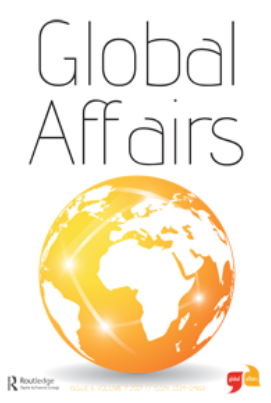
Navigating ontological (in)security in EU–Africa relations
Abstract:
When the first six members of the European Economic Community (EEC) took that initial step towards deeper integration that has culminated in what is now the European Union (EU), they also agreed “to associate with … the non-European countries and territories which have special relations with Belgium, France, Italy, the Netherlands and the United Kingdom”. Six decades on and several attempts to re-set EU-Africa relations, it is appropriate to take stock of the relationship especially in light of changes in both continents since 2000. This article draws on the idea of ontological security to understand the nature of changes and continuities in the EU’s engagement with Africa. It argues that EU-Africa relations that have relied on a coloniality of power have also been crucial to the EU’s ontological security. However, increasing African agency and new external actors like China in Africa are challenging this security. While challenges to the EU’s ontological security have been viewed as primarily internally constituted, external challenges within a specific context provides the opportunity to rethink what ontological security demands. Importantly, Navigating ontological (in)security in EU–Africa relations highlights why a partnership of equals is an urgent imperative for the future of EU-Africa relations, although it remains elusive.
Quotation:
Toni Haastrup, Niall Duggan & Luis Mah (2021) Navigating ontological (in)security in EU–Africa relations, Global Affairs, 7:4, 541-557, DOI: 10.1080/23340460.2021.1981144
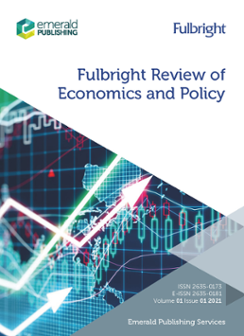
Common causes in grassroot development: a case for community-based and community-driven response in the postpandemic era
Abstract:
The purpose of Common causes in grassroot development: a case for community-based and community-driven response in the postpandemic era is to determine the impact of community-based and driven approaches during the lockdowns and early periods of the pandemic. The study examines the impact and perceptions of the state-led intervention. This would help to discover a better approach for postpandemic interventions and policy responses. This article used the inductive method and gathered its data from surveys. In search of global opinions on COVID-19 responses received in communities, two countries in each continent with high COVID-19 infection per 100,000 during the peak period were chosen for study. In total, 13 community workers, leaders and members per continent were sampled. The simple percentile method was chosen for analysis. The simple interpretation was used to discuss the results. The study showed that poor publicity of community-based interventions affected awareness and fame as most were mistaken for government interventions. The study found that most respondents preferred state interventions but preferred many communities or local assessments of projects and interventions while the projects were ongoing to adjust the project and intervention as they progressed. However, many preferred community-based and driven interventions.
Quotation:
Patrick-Agulonye, U.V. (2021). “Common causes in grassroot development: a case for community-based and community-driven response in the postpandemic era” Fulbright Review of Economics and Policy, Vol. 1 No. 2, pp. 186-204. https://doi.org/10.1108/FREP-09-2021-0056

Enchanted Things to Narrate the Oceans: João Paulo Borges Coelho and Luís Cardoso
Abstract:
Enchanted Things to Narrate the Oceans: João Paulo Borges Coelho and Luís Cardoso stems from the research developed under the NILUS project and, in particular, falls within the research strand that explored the role of material culture and materiality in contemporary narratives of the Lusophone Indian Ocean. The paper focuses on the short story ‘O Pano Encantado’ (2005) by João Paulo Borges Coelho and the novel Requiem para o Navegador Solitário (2007) by Luís Cardoso – two narratives set in island spaces, the small island of Mozambique and the island of Timor, respectively. It aims to validate the hypothesis that the appeal to material culture and materiality offers a way of narrating and remembering (in) the Indian Ocean from different shores of its range. The article was produced for the Modern Humanities Research Association (MHRA), an international organization with members in all parts of the world. The aim of the Association is to encourage and promote advanced study and research in the field of modern humanities. It is concerned to break down barriers between scholars working in different disciplines and to maintain the unity of humanistic scholarship in the face of increasing specialization.
Quotation:
Falconi, J. (2021). Enchanted Things to Narrate the Oceans: João Paulo Borges Coelho and Luís Cardoso. Portuguese Studies, 37(2), 224–241. https://doi.org/10.5699/portstudies.37.2.0224
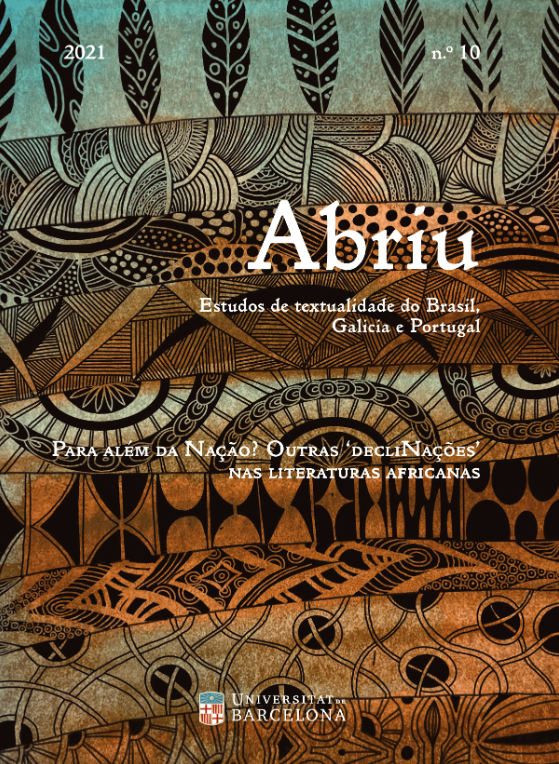
Beyond Nationhood: Other ‘Declensions’ in African Literatures
Abstract:
In the last two decades, Portuguese-speaking African literature, as a field of critical inquiry and object of academic study,1 has been undergoing a great expansion, with numerous dissertations, monographs, conference proceedings, special issues of journals, and articles produced in several countries. The article Beyond Nationhood: Other ‘Declensions’ in African Literatures traces the evolution of the national perspective in the studies of Lusophone African Literatures from the 1980s to the present. Based on a selection of collective and individual publications, as well as highlighting impor tant academic events for the area, the article seeks to identify lines of continuity and moments of rupture in the approach of these literatures based on the idea of Nation as a critical category and unity of analysis, from the consolidation of the link between literature and national independence affirmed after decolonization until the reception of post-colonial theories which occurred in the mid-1990s. Also, the article looks at the theoretical and disciplinary articulations between African Literature, Postcolonial Studies, Indian Ocean Studies and Comparative Litera tures, to provide a possible mapping of the most recent approaches that seek to build new critical cartographies for the studies of these literatures.
Quotation:
Falconi, J. (2021). Beyond Nationhood: Other ‘Declensions’ in African Literatures. Abriu: Estudos De Textualidade Do Brasil, Galicia E Portugal, (10), 9–38. https://doi.org/10.1344/abriu2021.10.1

Literatura colonial de autoria feminina: O Último Batuque, de Maria do Céu Coelho
Abstract:
Portuguese colonial literature written by women has received little attention in Lusophone literary and cultural studies. The most relevant exception, in this regard, is the case of Maria Archer, author of a significant number of fiction and non-fiction texts of colonial setting and theme that have received diverse readings and analyses. In particular, Ferreira’s works on women’s authorship writing and the connections between gender, nation and empire were pioneers in approaching this production according to an integrated theoretical framework, capable of illuminating material and symbolic transits and identity reverberations between nation and empire, in line with the paradigms of colonial and feminist historiography of the 1990s. Literatura colonial de autoria feminina: O Último Batuque, de Maria do Céu Coelho, aims to deepen and broaden the knowledge of Portuguese women’s writing on colonial themes, by providing a reading of the book O último batuque (1963) by Maria do Céu Coelho, published in Mozambique in the early 1960s. It is a singular work, for focusing on the eminently masculine topic of hunting from a woman’s perspective, and also for being a hybrid book that combines memorialistic writing and short novellas about the rural universe of colonial Mozambique. The paper discusses some of the essential characteristics of Portuguese colonial literature, as it has been conceptualized by several authors in previous studies. Resorting also to the vast literature on the articulations between gender, empire, and colonialism, the article seeks to equate the author’s position in the corpus of colonial literature, as well as to reflect on how her literary writing articulates race and gender.
Quotation:
Falconi, Jessica (2021) “Literatura colonial de autoria feminina: O Último Batuque, de Maria do Céu Coelho,” Portuguese Cultural Studies: Vol. 7: Iss. 1, Article 4.
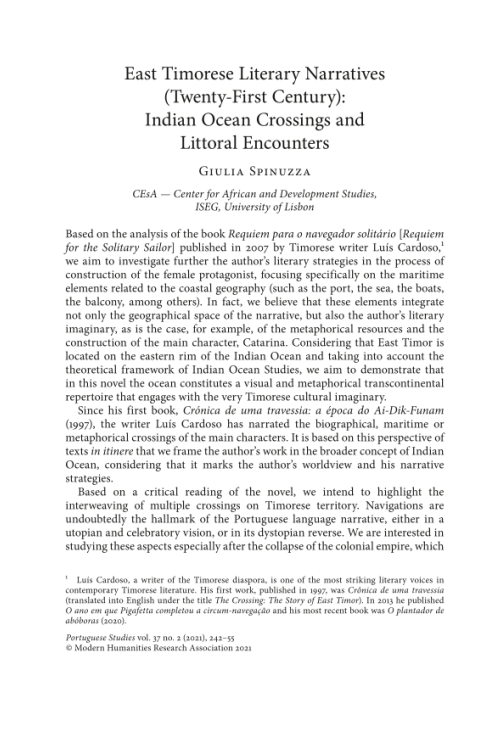
East Timorese Literary Narratives (Twenty-First Century): Indian Ocean Crossings and Littoral Encounters
Abstract:
The aim of East Timorese Literary Narratives (Twenty-First Century): Indian Ocean Crossings and Littoral Encounters is to analyze the book Requiem para o Navegador Solitário (2007) [Requiem for the Lonely Sailor] by Luís Cardoso considering the maritime elements that emerge in the novel and combining Indian Ocean Studies with Gender Studies. Pointing to the Timorese imaginary and the female protagonist’s perspective, we will focus on the elements related to the island’s coast, such as the shore, the sea, ships, sailors, and the interconnection with other islands and territories during the colonial period. In fact, we believe that these elements integrate not only the geographical space of the narrative, but also the literary imaginary, as is the case, for example, of the metaphorical resources and the construction of the main character, Catarina. Considering that East Timor is located at the eastern edge of the Indian Ocean and taking into account the theoretical theory of Indian Ocean Studics, we intend to demonstrate that in this novel the ocean constitutes a visual and metaphorical transcontinental repertoire that relates to the Timorese cultural imaginary itself. We will analyze the connection between the existential trajectory of Catarina, the novel’s female protagonist, the history of East Timor and the Indian Ocean crossings. This text, written in Portuguese by a Timorese author, portrays the complex history of this territory during World War II and offers a unique perspective on Timorese history.
Quotation:
Spinuzza, G. (2021). East Timorese Literary Narratives (Twenty-First Century): Indian Ocean Crossings and Littoral Encounters. Portuguese Studies 37(2), 242-255. doi:10.1353/port.2021.0017.





